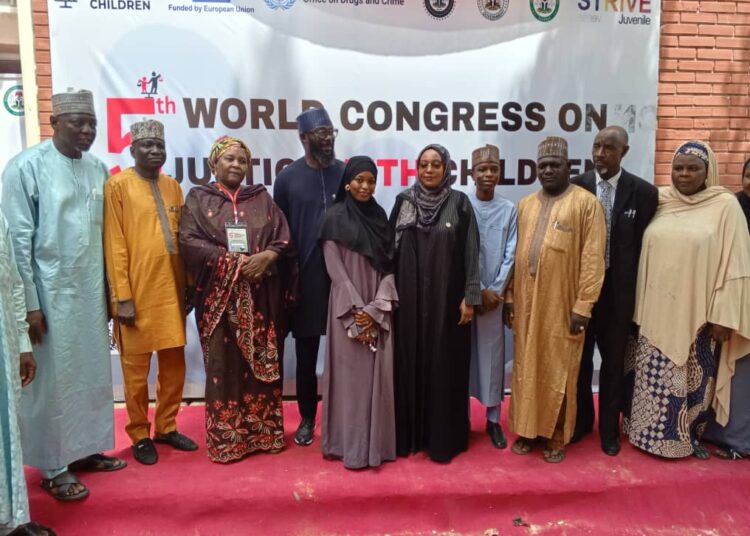The United Nations Office on Drugs and Crime (UNODC) has revealed that at least 1,385 children were recruited by Boko Haram between 2017 and 2019 across Borno State and other parts of Nigeria’s North-East.
This alarming figure was disclosed by UNODC Country Director in Nigeria, Mr. Cheikh Ousmane Toure, during the 5th World Congress on Justice with Children, held Monday in Maiduguri. The event was themed: “Advancing Child-Centred Justice: Preventing and Responding to Violence Affecting Children in Justice Systems.”
Toure noted that children in Borno, Adamawa, and Yobe states have endured the worst of the insurgency since 2009, facing abductions, trafficking, and forced recruitment into armed groups.
“Available reports indicate that at least 1,385 children were recruited between 2017 and 2019 alone,” Toure said.
“These are not just statistics. Each number reflects a child whose life and future are in jeopardy. About 60 percent of the victims are youths, and Nigeria’s future depends on safeguarding and empowering this demographic.”
He called for urgent and sustained action to protect children from violence and exploitation, particularly in conflict zones like the North-East.
Toure commended the resilience of the region’s youth, especially the Youth Peace Champions, a UNODC-backed initiative promoting peacebuilding and peer advocacy for child protection.
“These young leaders are spreading awareness, mentoring peers, and pushing for restorative justice. They are demonstrating what inclusive and grassroots-led development looks like,” he said.
Since assuming his role in Nigeria in October 2024, Toure has prioritised youth-led initiatives and women’s empowerment across all UNODC programs.
“Every project must show tangible results—especially for youths, women, and persons with disabilities,” he added.
He also expressed hope that the success of the Youth Peace Champions in the North-East would inspire similar movements in other regions, including the North-West, North-Central, and southern parts of Nigeria.
“This is the inclusive strategy Nigeria needs. The voices of young people must be amplified—locally, nationally, and globally,” Toure said.
He called on government agencies, justice stakeholders, development partners, and civil society to go beyond rhetoric and take concrete action.
“Child protection is not optional. Prevention demands more than words—it requires funding, commitment, and measurable accountability,” he stated.
“Together, we can create a future where every Nigerian child is protected, empowered, and never left behind.”
Speaking at the event, Borno State Governor, Prof. Babagana Zulum, reaffirmed the state government’s commitment to prioritising children in policy decisions, especially regarding juvenile justice.
Represented by the Commissioner of Justice, Hauwa Mohammed, Zulum described the event as timely, highlighting the deep physical, emotional, and psychological trauma inflicted on children during over a decade of insurgency.
He pledged that no child affected by conflict would be allowed to fall into the hands of recruiters or armed groups again.
The governor also vowed that through the Ministries of Justice and Women’s Affairs and Social Development, Borno State would work to protect children’s rights, ensure access to education, justice, welfare, and shield them from forced labour or exploitation in conflict.

Leave a Reply